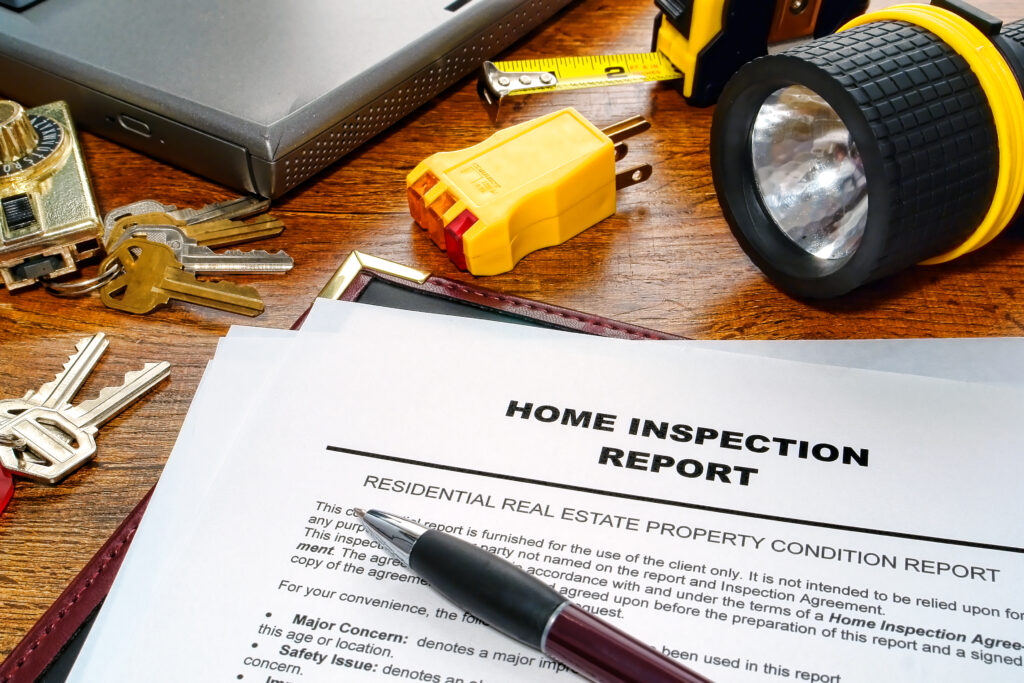[vc_row][vc_column][vc_column_text]The residential real estate market in Northern Illinois continues to be a seller’s market despite the effects of the pandemic on the economy. The local inventory of homes for sale continues to be below optimum levels and for most price points there are more buyers than sellers. As a result, it is common for sellers with property listed with a realtor to receive multiple offers for their home. Also, it is not unusual for a seller to receive offers and inquiries from potential buyers after a seller has a pending contract with another buyer. Therefore, many sellers in today’s market have options – and sometimes better options – if their pending contract does not work out.
Buyers could unwittingly play into the hands of a seller anxious to accept a better offer if they are unaware of the implications of the inspection contingency language in their contact. Residential real estate contracts typically have a buyer home inspection contingency in the “boilerplate” language. There is no universal inspection contingency language in all residential contracts so the language in your contract should be reviewed carefully.
For instance, in the standard form contract used in most residential transactions in Winnebago County, the contact includes a buyer inspection contingency for major components of the real estate including heating and cooling systems, plumbing and well system, electrical system, roof, windows, ceilings, floors, appliances and foundation. The contract language provides that “If the Buyer notifies Seller within seven (7) business days of the final acceptance of this contract that the results of the inspection are unacceptable to Buyer, this contract shall be void.”
It is common for buyers to engage a licensed home inspector to inspect the property and provide a report. This is strongly recommended for all buyers to determine whether there are any major issues with the home from a health and safety perspective and to determine whether there are any imminent large repair or replacement expenses necessary. Oftentimes, buyers will use the report and provide a laundry list of items they want the seller to correct or repair in order to approve the inspection. Sometimes the requested repair items are ones that pose a risk to health and safety and need to be corrected for the buyer to seriously consider proceeding with the transaction. However, often the buyer’s laundry list of items includes normal routine maintenance items that most would consider mundane tasks of homeownership.
According to the inspection contingency language in the standard form contract used in Winnebago County, once the buyer sends the seller a list of repair items determined during the inspection they are telling the seller that the results of their inspection are unacceptable and, in accordance with the contract language, the contract is now void. The buyer will have given the seller the legal right to move on to another buyer. The buyer’s list of repair items is deemed a counteroffer which the seller can reject and the contract with that buyer would be terminated.
Most buyers are not aware of this risk when they make repair demands on their seller. If the home is the buyer’s dream home then, especially in this current market, they may want to think twice about sending the seller repair demands for what may be, in the big picture, rather insignificant repairs.
Buyers should be aware of the contractual implications of their communications around inspection findings. There are ways for buyers to navigate these issues with a seller without risking the entire contract. An experienced attorney can help both parties with this and other contractual provisions.
WilliamsMcCarthy LLP has been representing the business and personal needs of the Rock River Valley for over 85 years, including commercial and residential real estate transactions and we would be happy to assist you in your purchase or sale.[/vc_column_text][/vc_column][/vc_row][vc_row][vc_column][vc_empty_space][/vc_column][/vc_row][vc_row][vc_column width=”1/3″][vc_single_image image=”8147″ alignment=”right”][/vc_column][vc_column width=”2/3″][vc_column_text]Carl A. Ecklund, a partner in the firm, concentrates his practice in Commercial and Residential Real Estate Law and Business and Corporate Law. He practices out of the firm’s Rockford office and is licensed in Wisconsin and Illinois. He can be reached at cecklund@wilmac.com or 815-987-8944.[/vc_column_text][/vc_column][/vc_row]





